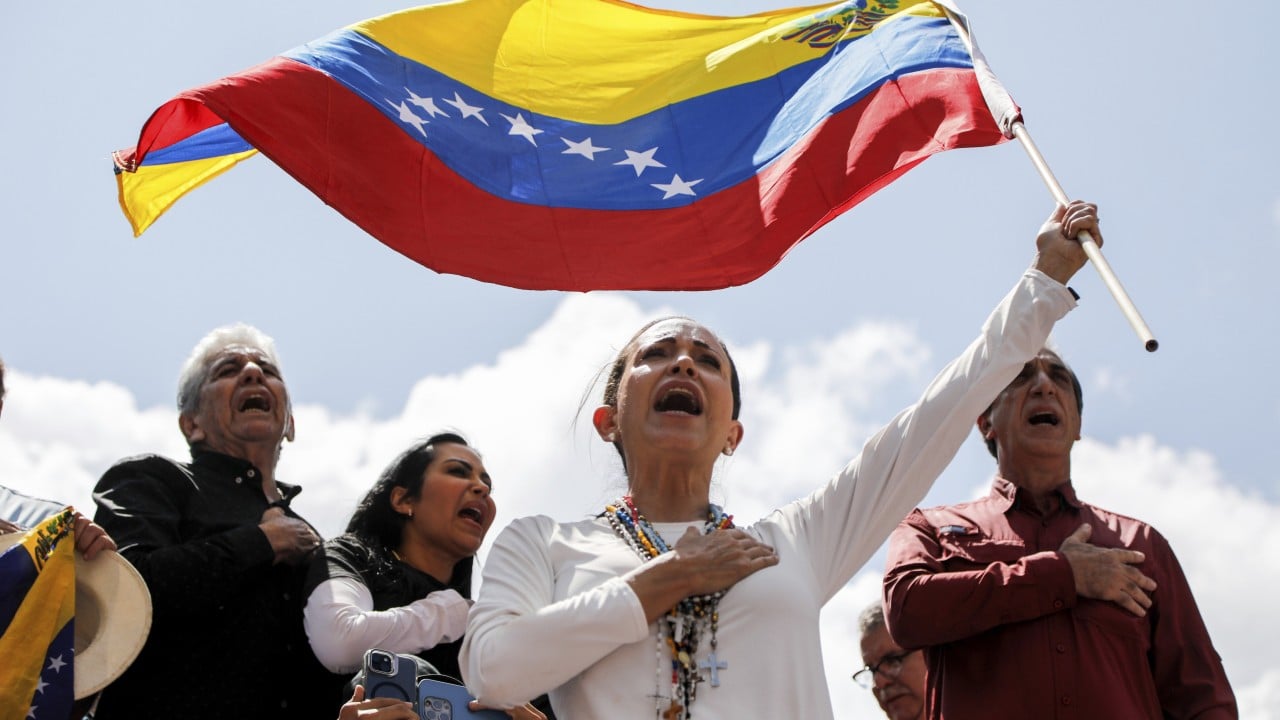Venezuelan opposition leader Maria Corina Machado vowed on Saturday that anti-government protesters would remain out in force as she came out of hiding to lead a protest in Caracas against Nicolas Maduro’s disputed re-election victory claim.
Machado had called for mass gatherings in more than 300 cities in Venezuela and abroad to intensify pressure on Maduro to concede what she says was an overwhelming opposition win in July 28 presidential polls.
She herself led a “Protest for the Truth” in the Venezuelan capital, after having been mostly in hiding in the face of arrest threats from Maduro’s government.
“We won’t leave the streets,” Machado told hundreds of demonstrators, many of whom were waving the national flag and printed copies of election records from their voting stations as proof of an opposition victory.
“With intelligence, prudence, resilience, boldness … peaceful protest is our right,” she said.
Demonstrators loudly cheered Machado’s speech. “Liberty! Liberty!” many shouted.
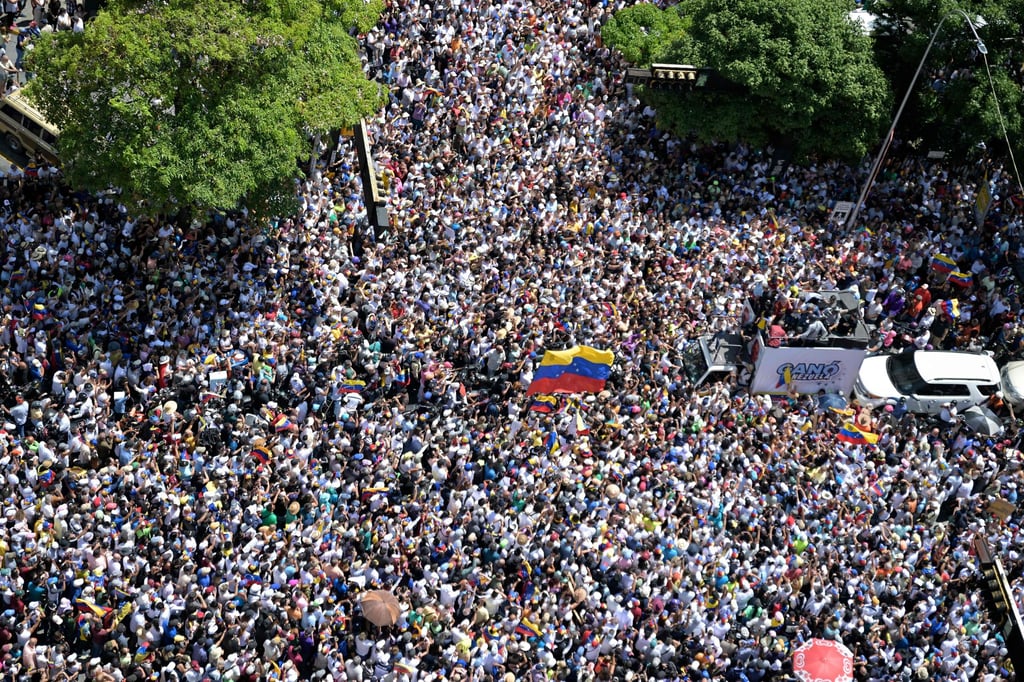
Earlier, Machado had called for the anti-Maduro movement to “remain firm and united” in the face of threats and violence.
“They’re trying to scare us, to divide us, to paralyse us, to demoralise us, but they can’t because they are absolutely entrenched in their lies [and] violence,” she wrote on X.
Venezuela’s National Electoral Council (CNE) proclaimed Maduro the winner of a third six-year term until 2031, giving him 52 per cent of votes cast on July 28 but without providing a detailed breakdown of the results.
The opposition says polling-station-level results show its candidate Edmundo Gonzalez Urrutia took more than two-thirds of the vote.
Gonzalez Urrutia replaced Machado on the ballot after she was ruled out of running by institutions loyal to the regime.
“If we keep quiet, this makes no sense,” said demonstrator Adriana Calzadilla, a 55-year-old teacher, in Caracas.
“This is a criminal government that wants to hold on to power. I smell freedom, I have nothing to fear.”
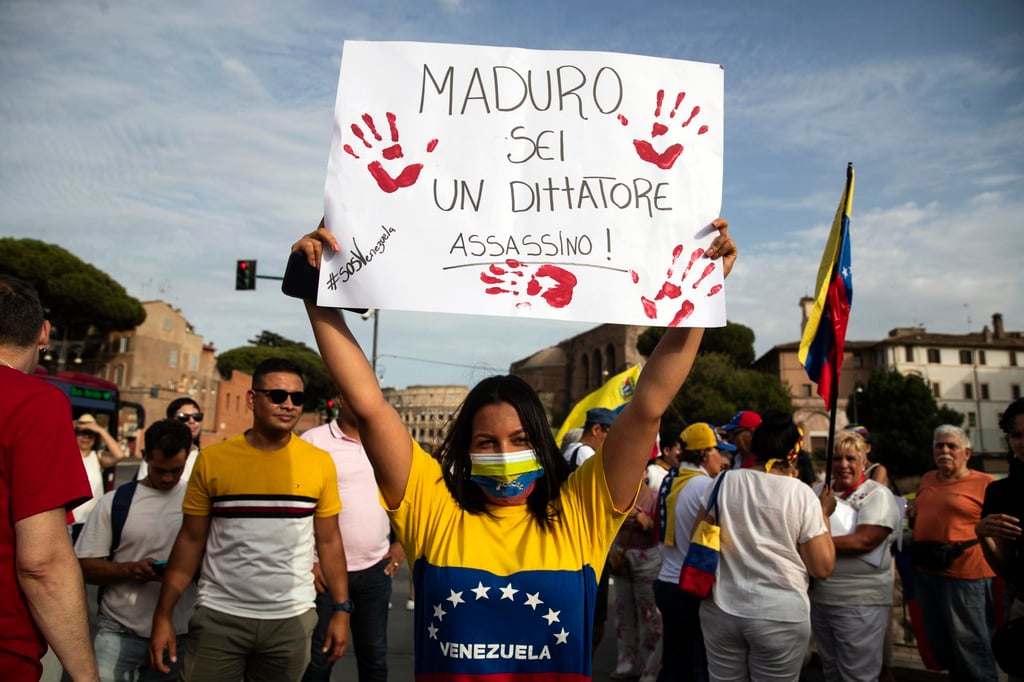
Anti-Maduro protests have claimed 25 lives so far, with nearly 200 injured and more than 2,400 arrested since election day.
Early Saturday, there was a heavy security build-up in the capital, with two armoured vehicles and 40 motorcycle-mounted troops controlling access to the low-income Petare neighbourhood, a few miles from the opposition’s gathering point.
Local media reported similar deployments in other areas.
At one of the first overseas demonstrations to get under way Saturday, more than 100 Venezuelans in Australia rallied in Sydney, waving national flags and balloons.
“This is a strong message to our people in Venezuela. We are with you, and we want the world to listen what we are saying,” protest organiser Rina Rivas said.
Gonzalez Urrutia, also in hiding, last appeared in public at a protest on July 30.
Maduro had called for Machado and Gonzalez Urrutia to be arrested. He accuses them of seeking to foment a coup d’état.
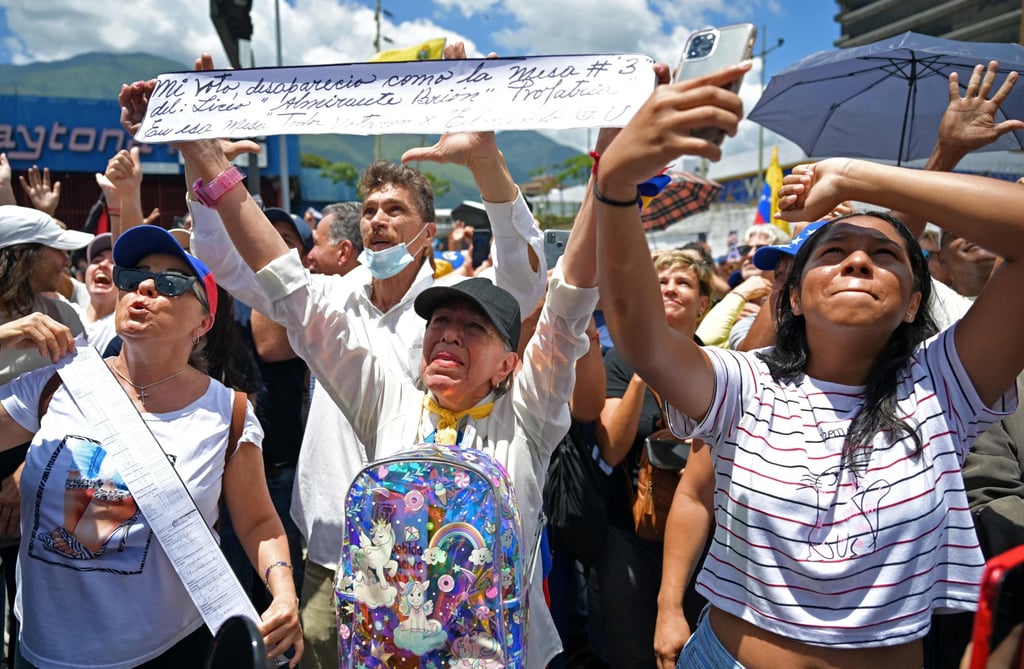
Maduro’s victory claim has been rejected by the United States, the European Union and several Latin American countries.
Neighbours Colombia and Brazil on Thursday called for fresh elections in Venezuela, but Machado said this would show “a lack of respect” for the popular will already expressed on July 28.
On Friday, Brazil’s Luiz Inacio Lula da Silva, traditionally a leftist ally of Maduro, described the regime in Caracas as “very unpleasant” and insisted on the release of a detailed vote breakdown.
In a radio interview, Lula declined to label the Maduro government a dictatorship, but said it had an “authoritarian bias”.
The Organisation of American States approved a resolution in Washington on Friday urging Caracas to “expeditiously publish the presidential election records, including the voting results at the level of each polling station”.
And in a joint statement Friday, the European Union and 22 countries called for an “impartial verification” of the election outcome.
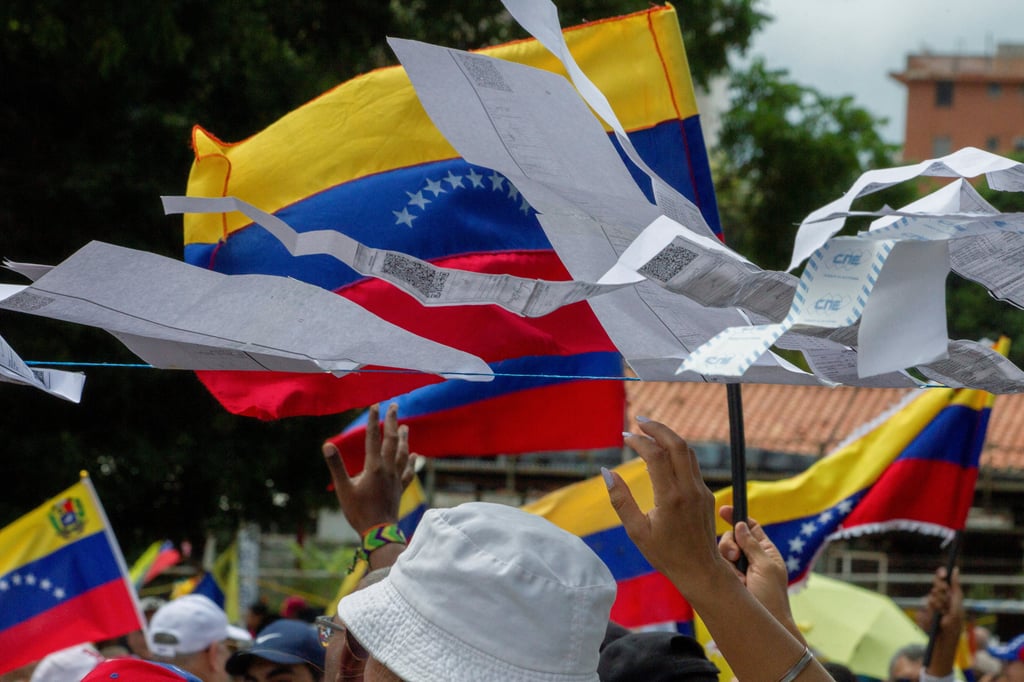
The CNE says it has been unable to release the results due to a “cyber terrorist attack” on its systems, though the Carter Centre observer mission has said there was no evidence for such a claim.
The opposition says it has access to 80 per cent of paper ballots cast, which show that Gonzalez Urrutia won handily.
The ruling “Chavista” movement, named after Maduro’s socialist predecessor Hugo Chavez, has also called demonstrations for Saturday in Caracas “in support of the victory” of the president in office since 2013.
Maduro has asked the Supreme Court, also said to be loyal to him, to “certify” the election result.
“Venezuela’s conflicts … are resolved among Venezuelans, with their institutions, with their law, with their Constitution,” he said on Thursday.
Maduro’s previous re-election in 2018 was also rejected by many countries, including the United States, and European and Latin American countries.


